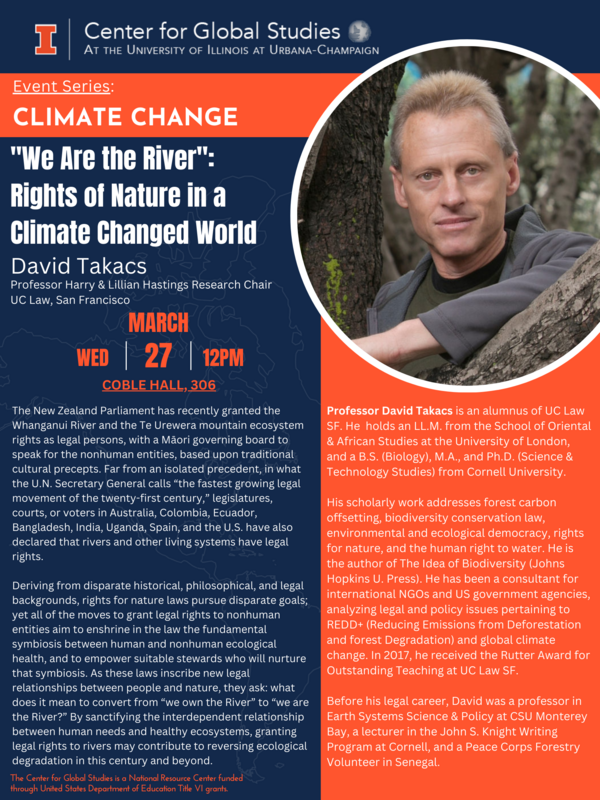
David Takacs (Professor Harry & Lillian Hastings Research Chair UC Law, San Francisco), "'We Are the River': Rights of Nature in a Climate Changed World"
- Event Type
- Lecture
- Sponsor
- Center of Global Studies
- Location
- 306 Coble Hall
- Date
- Mar 27, 2024 12:00 pm
- Speaker
- David Takacs (Professor Harry & Lillian Hastings Research Chair UC Law, San Francisco)
- Views
- 322
- Originating Calendar
- Center for Global Studies: Events
The New Zealand Parliament has recently granted the Whanganui River and the Te Urewera mountain ecosystem rights as legal persons, with a Māori governing board to speak for the nonhuman entities. based upon traditional cultural precepts. Far from an isolated precedent, in what the U.N. Secretary General calls "the fastest growing legal movement of the twenty-first century," legislatures, courts, or voters in Australia, Colombia, Ecuador, Bangladesh, India, Uganda, Spain, and the U.S. have also declared that rivers and other living systems have legal rights.
Deriving from disparate historical, philosophical, and legal backgrounds, rights for nature laws pursue disparate goals; yet all of the moves to grant legal rights to nonhuman entities aim to enshrine in the law the fundamental symbiosis between human and nonhuman ecological health, and to empower suitable stewards who will nurture that symbiosis. As these laws inscribe new legal relationships between people and nature, they ask: what does it mean to convert from "we own the River" to "we are the River?" By sanctifying the interdependent relationship between human needs and healthy ecosystems, granting legal rights to rivers may contribute to reversing ecological degradation in this century and beyond.
We hope to see you there!